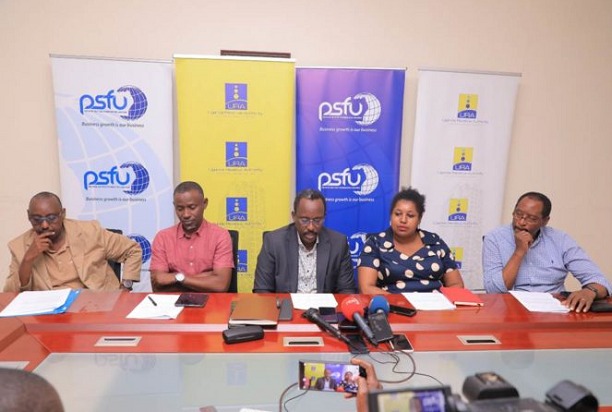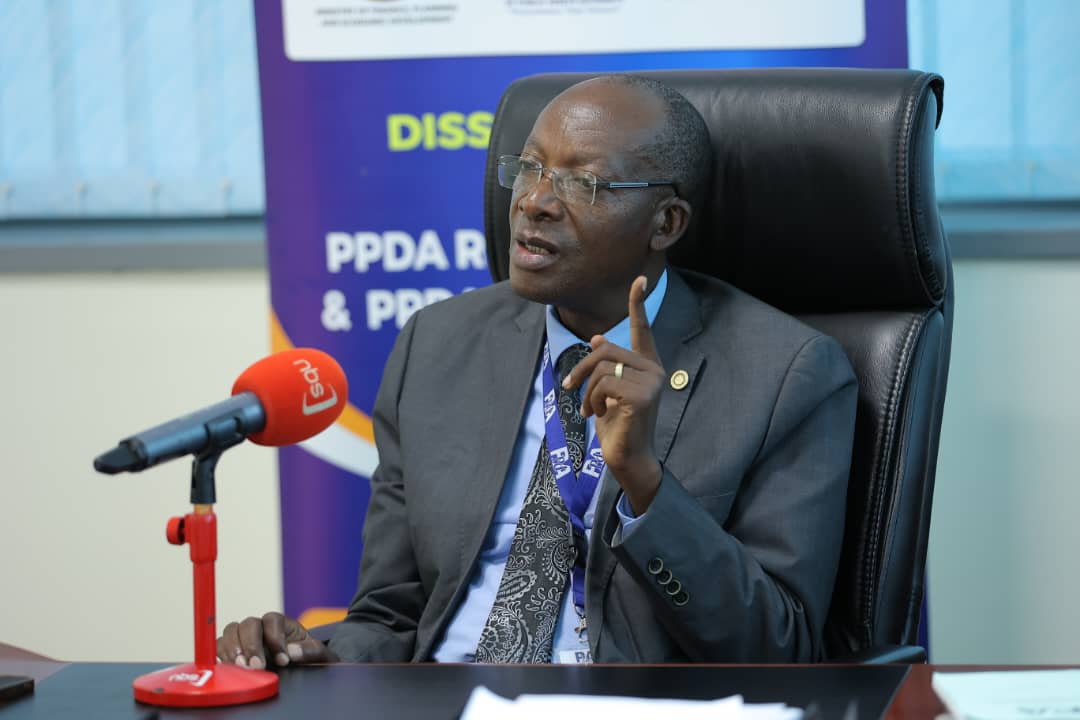Spotlight: URA looking for ways to widen tax base
Uganda Revenue Authority (URA) is to embark on tax education to incorporate potential taxpayers within the informal sector as one of the ways of widening the tax base.
The revelation was made by URA Commissioner General John Musinguzi during the NBS TV's Spotlight show.
Keep Reading
Musinguzi said this will enable the tax body to hit its revenue collection target.
He explained that currently, they are collecting and contributing 47% of our national budget at a tax to GDP ratio of 13% adding that his is below the sub-Sahara African average.
For Uganda to attain self-sufficiency, Musinguzi said that there is need to at least double our tax to GDP ratio to 26% which he is said it can be attained.
"Despite the low revenue in comparison to government expenditure needs, Uganda is nonetheless still able to fund the larger portion of her budget expenditure using internally generated revenue (at least 47% of the annual budget expenditures),"he said.
He stated that the Uganda's tax to GDP ratio of 13% is very low noting that the Covid-19 era was an opportunity for the country to think outside the box and to look for other areas where it can collect taxes from.
"Covid-19 impacted businesses and incomes because revenue is a fraction of income. When the economy suffers, the revenue definitely suffers. We had to come up with flexible means to collect the little revenue," he said.
In the face of Covid-19, he said that they had to come up with flexible means to collect the little revenue that was being collected.
"We extended payment days and allowed payment of taxes in instalments among many other business-supporting interventions.We have purposed to fill the gap, and raise enough funds to sustain the budget, and prevent our country from borrowing because as Uganda, we do not benefit that much from debt,"he said.
Musinguzi said that the formalisation of a business is primarily to the benefit of the business itself adding that the information gap that exists between agencies like URA and it's clients is so big that sometimes it complicates businesses.
"It is important to formalise companies as it helps in keeping proper track of the companies. Most of these multinational companies started small; but with proper record keeping and meeting obligations such as tax, they grew," he said.
He said that a business has no tax obligation at all until it starts earning an income.
"At URA, we are cognisant that some businesses might find it hard to keep records. Those businesses can also contribute their fair share of revenue through presumptive tax. We have deliberately purposed to invest in massive tax education to enable taxpayers to know their rights and obligations,"he said.
Musinguzi urged the public not to fear URA but to engage them.
"The problem is that young people fear URA because they think they will start paying taxes before earning income. It's not true that once u get a TIN, you immediately start paying taxes. A business is taxed when it starts making profits,"he noted.
The deputy executive director of the Private Sector Foundation Uganda (PSFU)Francis Kisirinya, said that when someone is operating under the radar, there is so much he or she is missing out on.
"In case you are looking for partners or tenders you cannot get them because you are not registered or even paying taxes.We all agree that there is an information gap.I am hesitant to say that there is also a trust gap,"he noted.
He advised all the taxpayers to follow examples of people who are tax compliant.
"A business should not be taxed until it makes money. This is what must be done. It is one of the ways we can use to motivate people to register their businesses. We need to look at how we can efficiently run investment projects,"he said.
On the impact of covid-19 on the businesses, Kisirinya said recovery is going to require the country to look at how it can expand it's markets noting that we need to lift our production capacity from 30% to probably 50%.
"Our markets have narrowed, our consumers do not have enough disposable income to spend. People have lost jobs while there have been some negative salary adjustments. When Covid-19 struck, nobody knew what would happen next,"he stated.


















